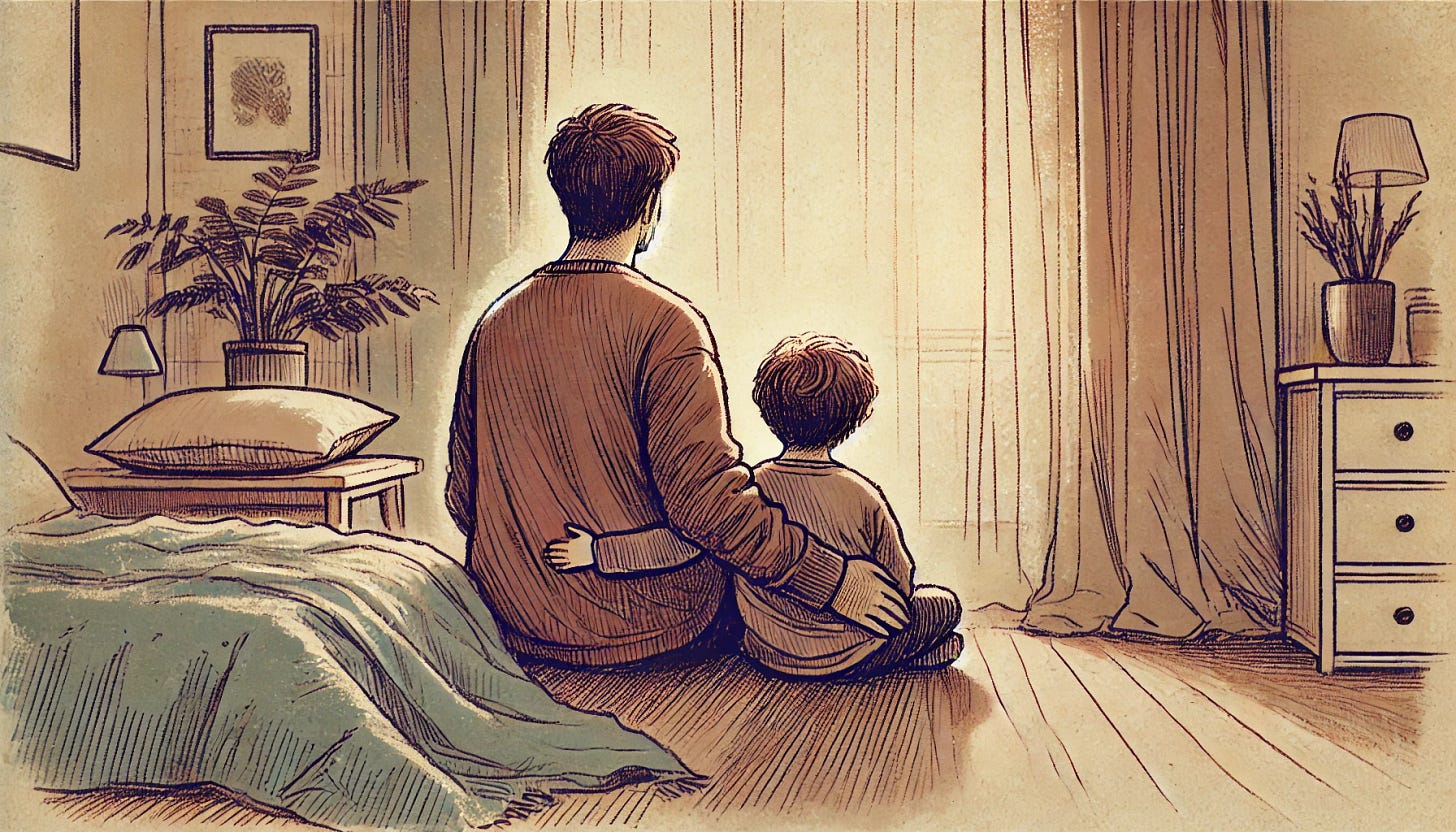Why I Stopped Apologizing
There are still moments when I catch myself mid-sentence, right on the edge of an apology I no longer want to make.
“I’m sorry, but…”
It used to fall from my lips like breath. Almost invisible. Almost expected.
For years, it was how I softened myself. A way to preempt rejection. To let people know I was aware of my own inconvenience. As if just existing in this body, this brain, this life, came with a need to constantly reassure everyone else I wasn’t trying to take up too much space.
I apologized for needing quiet.
For asking someone to turn down the volume or dim the lights.
For stimming. For flapping. For leaving the party early.
I apologized for my softness and my strength. For my ambition. For my exhaustion. For my grief.
I apologized for not being who people expected—and for being exactly who I am.
The Apology Reflex
It’s taken me years to realize that all of that apologizing was its own kind of trauma response.
Some of it is neurodivergence. I masked so hard and for so long that it became second nature. And part of that mask was the language of apology—a constant buffering between who I am and how I feared others might receive me.
But it’s also gender. It’s culture. It’s white supremacy. It’s growing up in a system where politeness is prized over honesty, where accommodating others is seen as the gold standard of maturity. It’s being praised for being “low maintenance.” For not needing anything.
It’s internalized people-pleasing, a lifelong audition for safety.
Yoga gave me a different kind of mirror.
The first time I laid down in savasana and didn’t immediately shift or fidget or brace for critique, I realized how unfamiliar rest felt in my body. Rest without guilt. Stillness without fear. Permission without apology.
Through my studies with Hola Yoga, with Gabrielle DeLorenze, with Sarah Jane Chapman—I started to understand that embodiment wasn’t just about alignment. It was about listening. Attuning. Reclaiming.
When I stopped asking my body to be quiet, I started hearing what it was really saying.
And so much of it was this: You don’t need to apologize for me.
Real-Time Healing
This is not a story of a past version of me who used to apologize and now doesn’t. This is right now. This is messy. This is in-process.
I still catch myself whispering “sorry” when I ask someone to speak more softly. I still feel the old reflex kick in when I cancel plans because my nervous system is maxed out. But I’m starting to notice. And noticing is the beginning of change.
I practice different language now. Not in an Instagram-quote way. In a real, awkward, human way.
Instead of “Sorry I need to step outside,” I say, “I’m going to take a quiet minute for myself.”
Instead of “I’m sorry I can’t stay longer,” I say, “I’m honoring what my body needs tonight.”
And the world doesn’t fall apart.
The people who love me… still do.
And I’m slowly learning to love myself that way, too.
Shifting the Story for Leo
Leo notices everything. I know that.
And when I think about the language I want to pass down, the internal script I hope they’ll carry, I come back to this one again and again: You never have to apologize for your needs.
When they come home overstimulated and ask for silence, I try not to question it. When they cry because something felt wrong in their body and they can’t yet explain why, I nod. I breathe. I say, “Yeah, that makes sense.”
Because I didn’t always get that. And I know how long it takes to unlearn the belief that your body is an inconvenience.
We’re healing that in real time—together.
Embodiment as an Antidote
The mat has become a place where I practice saying yes to myself.
In my classes, I often cue alternatives that are actually just choices. “Maybe you stay here. Maybe you rest. Maybe you move in a way that feels like home.”
No apologies.
No justification.
Just presence.
One student told me after class, “I didn’t know I was allowed to listen to my body like that.”
And I nodded, because I didn’t either.
This is what embodiment teaches me: You do not have to earn your existence. You do not need to offer a disclaimer to be loved.
A New Way to Speak
I’m still learning. Still fumbling. Still rephrasing mid-sentence. Still whispering my needs some days instead of owning them fully.
But there’s been a shift.
Now, I write them down. I speak them aloud in therapy. I say them in front of Leo. I say them to Leo.
“I don’t feel like being touched right now, but I love you.”
“I need quiet to think.”
“I don’t have the capacity to talk about this yet.”
These aren’t walls. They’re doors. Openings. Invitations to honesty.
And they are soft. But they are strong.
What I Know Now
There is grace in naming what we need without apology. There is power in telling the truth gently. There is healing in taking up just enough space to breathe.
This is how I’m learning to come home to myself.
This is how I’m teaching Leo what home can feel like inside their own skin.
And this is why I stopped apologizing.
Not because I don’t care.
But because I finally do.





This is such an important topic! From a fellow neurodivergent, thank you! I feel seen.♥️